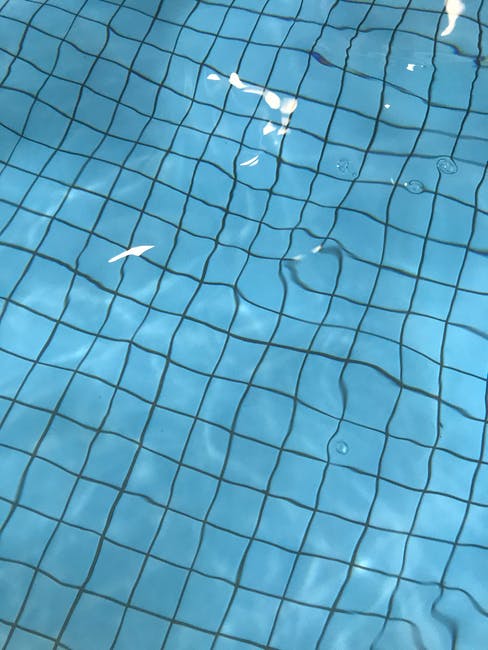A large-scale study that tracked 80,000 adults over 20 years found that swimmers have a reduced risk of dying from heart disease! The risk of death from all heart concerns was reduced by a staggering 41%.
If you’ve decided that you’re going to build a pool in your Katy, TX home, you’ve made a great decision. We hope the value of your home and your health will both improve! But now there’s another major decision to make – salt vs chlorine pool.
There are pros and cons to both, but we hope our discussion will help you find the right fit.
Types of Pools Available Today
Before we get into the pros and cons of building a salt vs chlorine pool, we have to get one thing out of the way. There’s actually chlorine in both of them.
But if you’re not a fan of chlorine, the good news is that the level is much lower in a saltwater pool than it would be in a regular pool. But chlorine is still important to keep nasty bacteria and viruses like salmonella and E. coli at bay.
How Saltwater Pools Work
No surprises here, you have to add salt to saltwater pools. But then the water passes through a saltwater chlorinator.
Salt is naturally made up of sodium and chlorine atoms.
A saltwater chlorinator passes an electrical charge through the salt. This breaks the bond between the sodium and the chlorine. This chlorine can then keep your pool clean by killing bacteria and viruses.
A control panel on the chlorinator tells you if the concentration of salt in the pool is high enough. If you’re thinking of building a pool, remember that you’ll need to buy salt. A typical pool may need over 220 lbs of salt, but don’t worry, it’ll last for some time.
And don’t worry – this isn’t some fancy Himalayan salt. Just regular ol’ table salt will do fine and it’s relatively inexpensive to buy in bulk.
How Chlorinated Pools Work
Chlorine pools require you to add either chlorine tablets, powder, or liquid to the pool water. These pool chemicals keep the water safe, but regular pool maintenance is needed to keep them at the correct level.
You’ll need to regularly test the pH, chlorine, and other factors to make sure it’s safe. You can get test kits for this purpose and you’ll need to test and adjust your water around 3 times a week when you’re using it.
Saltwater Pool Advantages
Lots of people aren’t crazy about storing and working with chlorine. It’s pretty nasty stuff if not used carefully. But with a saltwater pool all you’ll need to store is a large quantity of salt.
With chlorine pools, you have to constantly test them throughout the summer and make small adjustments. Typically with a saltwater pool, you only need to test them a few times a year. It’s easier to maintain the correct balance in the water.
Another pro is that a lot of people just prefer the experience of swimming in a saltwater pool. The water is softer and more comfortable and the lower chlorine levels mean it doesn’t usually cause stinging eyes.
Just don’t expect it to be like swimming in the sea. The salt levels are way lower and the water may not even taste particularly salty. Saltwater is also kinder to the skin and the hair.
Finally, saltwater pools don’t usually develop the chlorine aroma we associate with some swimming pools.
Saltwater Pool Disadvantages
The main disadvantage is that they initially cost a lot more than a chlorine pool.
The reason for this is the saltwater chlorinator. Rather than just paying for a piece of kit that circulates chlorine around the pool, you have to buy a machine that actually makes the chlorine. This can be expensive to buy and repair if it goes wrong.
You may be able to perform simple repairs yourself. But if it goes majorly wrong, you’ll need to call in a pool maintenance company to sort it out.
Salt is also corrosive to many materials used when building a pool. For example, it can eat away at stainless steel, light fixtures, and even stone surfaces. You’ll need to choose your masonry and fixtures very carefully but you might not be able to avoid damage in the long run.
Chlorine Pool Advantages
The major pro of chlorine pools is that they’re common and the chemicals you need are easy to obtain. They’re cheaper to build than saltwater pools. Over time, you will spend more on pool chemicals but they are still relatively cheap.
They need to be tested and maintained, but it’s not a complicated process. After you’ve done it a few times it’ll become second nature.
You also don’t need to pay for electricity to run a saltwater chlorinator. With the cost of electricity rising in Texas by 70% since last summer, it’s important to think about.
Chlorine Pool Disadvantages
The major con of a chlorine pool is that chlorine is a potentially harmful chemical. You’ll need to store it carefully and handle it with care. Plus, when chlorine combines with certain substances, it can give off an unpleasant smell.
You’ll also need to be committed to regularly testing and treating the pool. If you don’t, bacteria could build up.
Some people also find chlorine pools irritate their eyes and skin and damage their hair.
Salt vs Chlorine Pool: The Winner Is…
The fact is that there is no clear winner in the salt vs chlorine pool battle.
Some people will love the fact that they’ll never have to deal with chlorine. For these people, the extra initial expense and possible future damage will outweigh the con that is handling chlorine. Others will appreciate the value that chlorine represents.
Whichever way, you get a pool! And who doesn’t want that in the middle of a Texas summer. Why not talk through the pros and cons of each with a Sahara Construction & Custom Pools expert.
We’ll be happy to help you make the right decision for your home. Call us today at (713) 634-9490 or request a consultation online.




